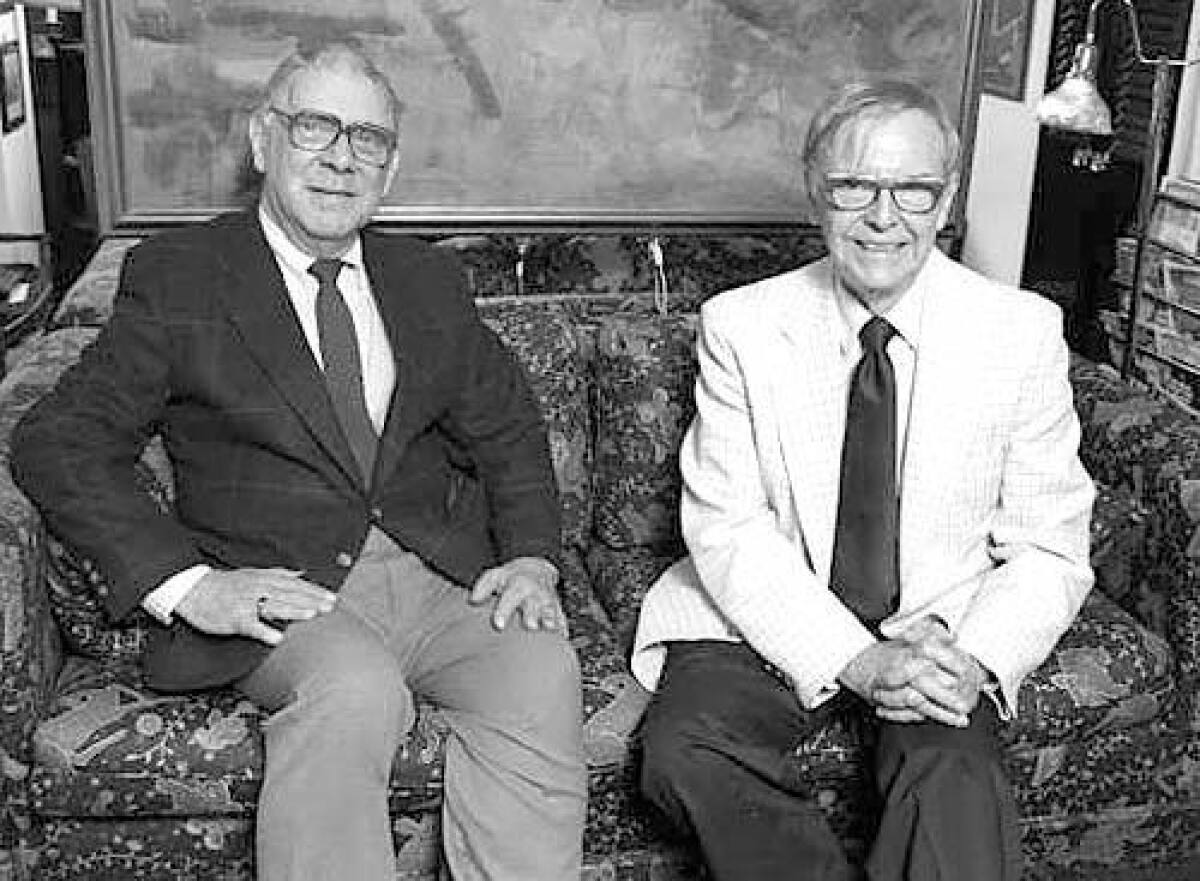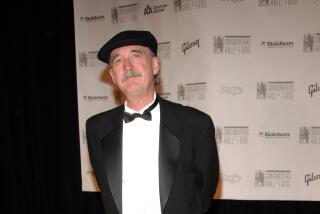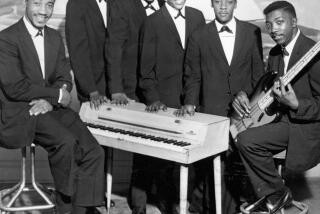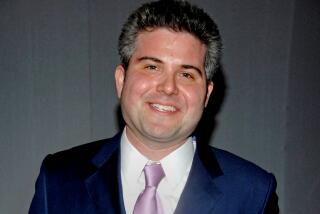Robert Wright, 90; Composer, Lyricist for Musicals and Films

Robert Wright, a Tony Award-winning composer and lyricist whose songwriting collaboration with George “Chet” Forrest included the hit Broadway musicals “Song of Norway,” “Kismet” and “Grand Hotel,” has died. He was 90.
Wright, a three-time Oscar nominee, died of natural causes Wednesday at his home in Miami, said Doug Holmes, his assistant.
Wright and Forrest were Florida high school students in the late 1920s when they met — the first song they wrote together was the school song “Hail to Miami High.” During their more than 70-year collaboration, they wrote the lyrics and music to more than 2,000 compositions for 16 produced stage musicals, 18 stage revues, 58 motion pictures and numerous cabaret acts.
The partners received Tonys for the score of “Kismet,” the hit 1953 Broadway musical based on themes of 19th century Russian composer Alexander Borodin. The show included songs such as “Stranger in Paradise” and “Baubles, Bangles and Beads.”
Their other Broadway credits included “Song of Norway,” the 1944 hit musical based on music of Edvard Grieg; “Magdalena,” with music adapted from Heitor Villa-Lobos; “Gypsy Lady,” with music adapted from Victor Herbert; “Anya,” with music adapted from Sergei Rachmaninoff; “Kean”; and “Timbuktu!”
Wright and Forrest, along with Maury Yeston, received Tony nominations for best music and lyrics for their final musical on Broadway, “Grand Hotel,” which opened in 1989 and won five Tonys, including best director for Tommy Tune, who also choreographed the show.
While under contract to MGM in the late 1930s and early ‘40s, Wright and Forrest won three Oscar nominations for best song — for “Always and Always” from “Mannequin” (1938), “It’s a Blue World” from “Music in My Heart” (1940) and “Pennies for Peppino” from “Flying With Music” (1942).
Among the pair’s other songs are “The Donkey Serenade,” “Strange Music,” “Willow, Willow, Willow,” “Sweet Danger,” “Sands of Time” and “Night of My Nights.”
“Bob and Chet were gifted songwriters who spent most of their careers adapting the music of classical composers for stage or screen,” Miles Kreuger, president of the Los Angeles-based Institute of the American Musical, told The Times on Friday.
But he added that “their original 1961 score for ‘Kean’ reveals how brilliantly gifted they were when allowed to create their own music.”
In a 1989 interview with the Associated Press, Wright said: “Writing original music is 10 or 20 times easier than the things for which we are best known. The first thing you have to do as an adapter is learn everything a composer ever wrote. Then you have to assemble and assimilate the music. And finally, think the way he did.”
Born Sept. 25, 1914, in Daytona Beach, Fla, Wright studied piano as a child and became a working musician early in life.
“I had won an amateur contest playing the Rachmaninoff C-Sharp Minor Prelude when I was 9 and went into vaudeville,” he told AP. “I found out very young that there was money in music, so I never touched the piano unless I was paid.”
His work included playing piano in a silent movie theater and leading his own orchestra while in high school, where he met Forrest, who was a year younger, when Forrest came in to audition for the Glee Club.
In 1933, Wright played piano for Helen Morgan, Leonard Rose and fan dancer Sally Rand.
A year later, he and Forrest launched an eight-month cabaret tour across the country that ended in Hollywood, where they landed an audition at MGM.
Signed to write original music and lyrics, Wright and Forrest remained at the studio seven years.
Their first assignment was writing songs for a 1936 musical short, “New Shoes.”
With Walter Donaldson as composer, they wrote lyrics for songs in films such as “Sinner Take All” (1936), “After the Thin Man” (1936) and “Saratoga” (1937).
In 1937, they received their first major assignment: to create a new score, by reusing musical themes in the public domain, for the film version of the Sigmund Romberg musical “Maytime,” starring Nelson Eddy and Jeanette MacDonald.
The same year, Wright and Forrest adapted a Rudolf Friml piano piece called “Chansonette.” It became “The Donkey Serenade,” a smash hit sung by Allan Jones in “The Firefly.”
“That put them on the map,” Kreuger said.
But, he added, both “Maytime” and “The Firefly” set a precedent of having Wright and Forrest adapt other people’s music.
In 1942, when MGM wanted the partners to rewrite Rodgers and Hart’s hit musical “I Married an Angel,” Kreuger said, they were outraged at being asked to rewrite the work of Broadway legends. They did it, he said, but then quit the studio.
Before leaving MGM, they wrote a small musical revue called “Thank You, Columbus,” which had a short run in Los Angeles.
“Once you write anything for the stage and you put it in front of an audience and you hear them react, then the movies become very dreary and dull,” Wright said.
Moving to New York to write for cabaret and radio, they created special material for performers such as Jimmy Durante, Sophie Tucker, Joe E. Lewis and Carmen Miranda.
For producer Edwin Lester, Wright and Forrest wrote “Song of Norway” for the Los Angeles Civic Light Opera. The musical, based on the life of Grieg using the Norwegian composer’s own melodies, opened in Los Angeles in summer 1944. That fall, it moved to Broadway, where it ran for two years.
In 1995, the American Society of Composers, Authors and Publishers presented the team with the Richard Rodgers/ASCAP Award for Outstanding Lifetime Contributions to the American Musical Theater.
Before Forrest’s death in 1999 at age 84, he and Wright were working on several possible musical projects.
Wright is survived by his brother, Jack, of Gloversville, N.Y.
More to Read
Sign up for Essential California
The most important California stories and recommendations in your inbox every morning.
You may occasionally receive promotional content from the Los Angeles Times.










